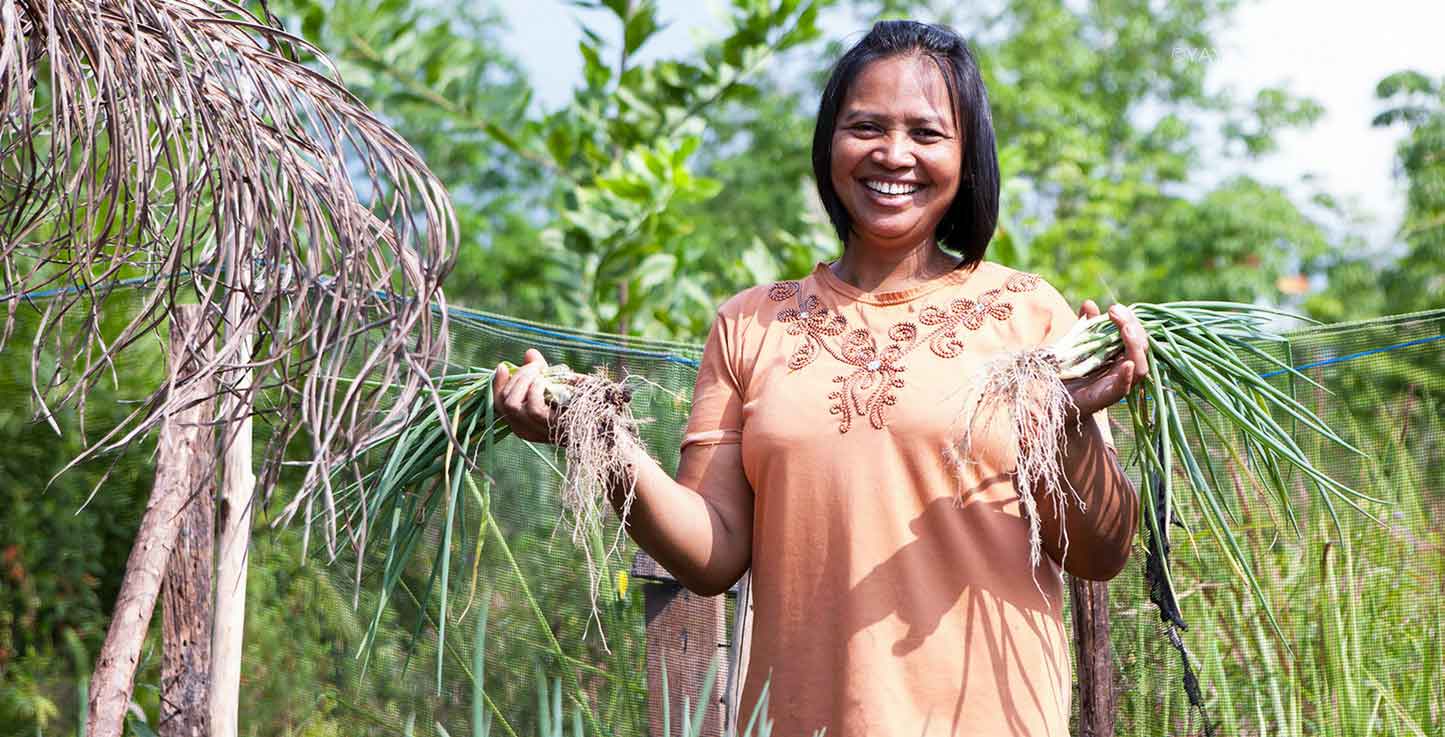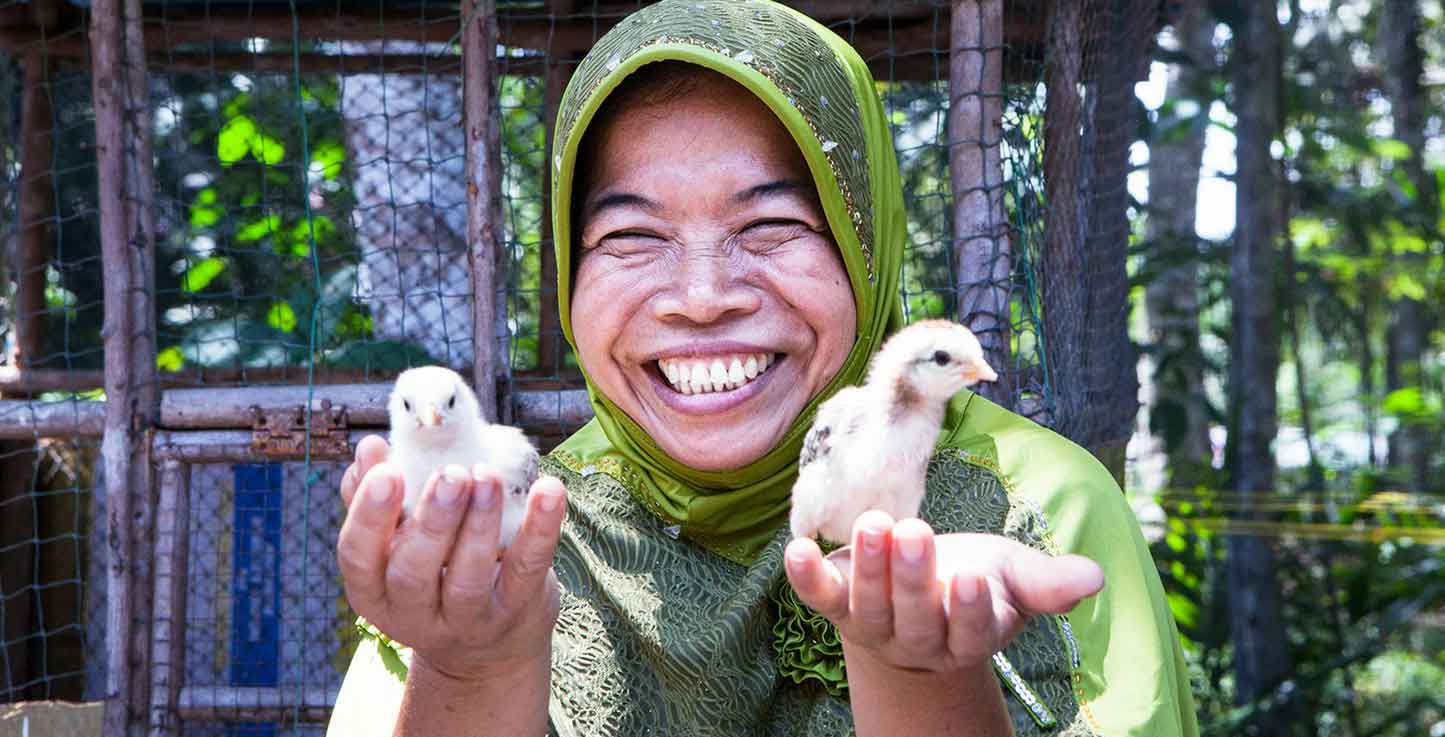Overview
YUM’s community based projects aim to provide a better standard of living for those families living in poverty. YUM aims to create a foundation for long-term stability and growth by promoting cooperation between members of each community and show communities what can be achieved when they work together.
Sustainable Agriculture
YUM’s agriculture project in Central Kalimantan was designed to improve the nutritional and economic situation of the local population, as well as to reverse the current deterioration of soil quality. The project aims to promote organic farming as a way to improve the health and nutrition of the surrounding community as well as improve their livelihoods.
Besides the trainings and implementation of home gardens in 7 villages in Bukit Batu, the project also focused on small animal husbandry, seed saving, verticulture, tree planting and small-scale agriculture.
The project ran from 2011 to 2015 and the results went beyond expectations, leading to 500 families actively part of the homegarden program, 912 participants in the health and nutrition program and more than 350 families with fishponds and chicken. More than 340 families have started growing fruit trees and those who do not own land, grow vegetables using verticulture. Many families have also set up medicinal gardens as well as started growing moringa trees and azolla.
Due to the pandemic, YUM revived the sustainable agriculture program, providing subsidized Home Garden Packages to families which included chicken manure, raw husks, seeds, agricultural lime and polybags. Each participant also gets 8 to 10 types of vegetables so that families may enjoy variety and, most importantly, to ensure they meet their nutritional needs. In addition, this variety also helps to reduce the risk of pests and plant diseases since these vegetables are grown without any pesticides and chemicals. Today, there are around 470 families in Bukit Batu who are benefiting from the distribution of Home Garden Packages, and 94% of them are women.
“I feel very happy and grateful because I get so many benefits such as reducing my expenses on shopping for vegetables in the market. The vegetables that are harvested are healthy for my family’s consumption, and I can even sell the surplus to neighbours. So, in addition to consumption, I also get additional income from these vegetables.”
Ibu Lilis, participant


